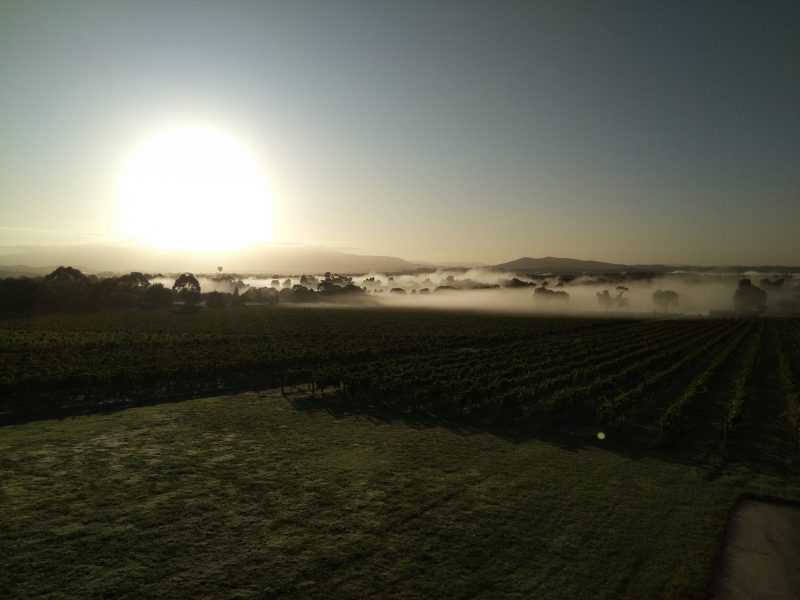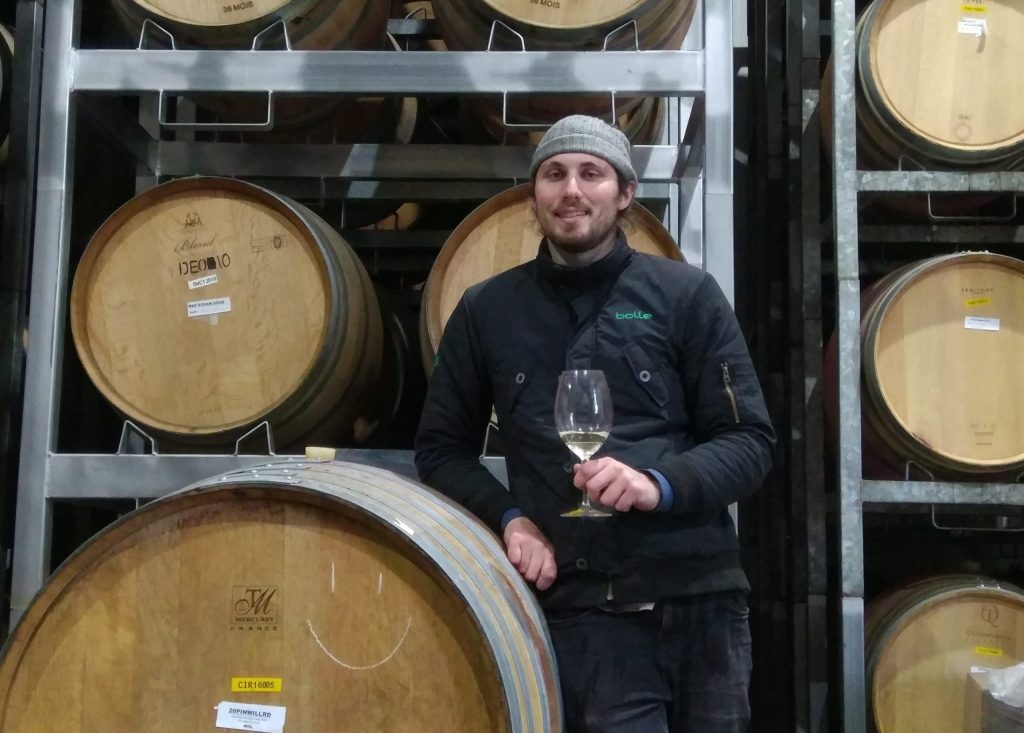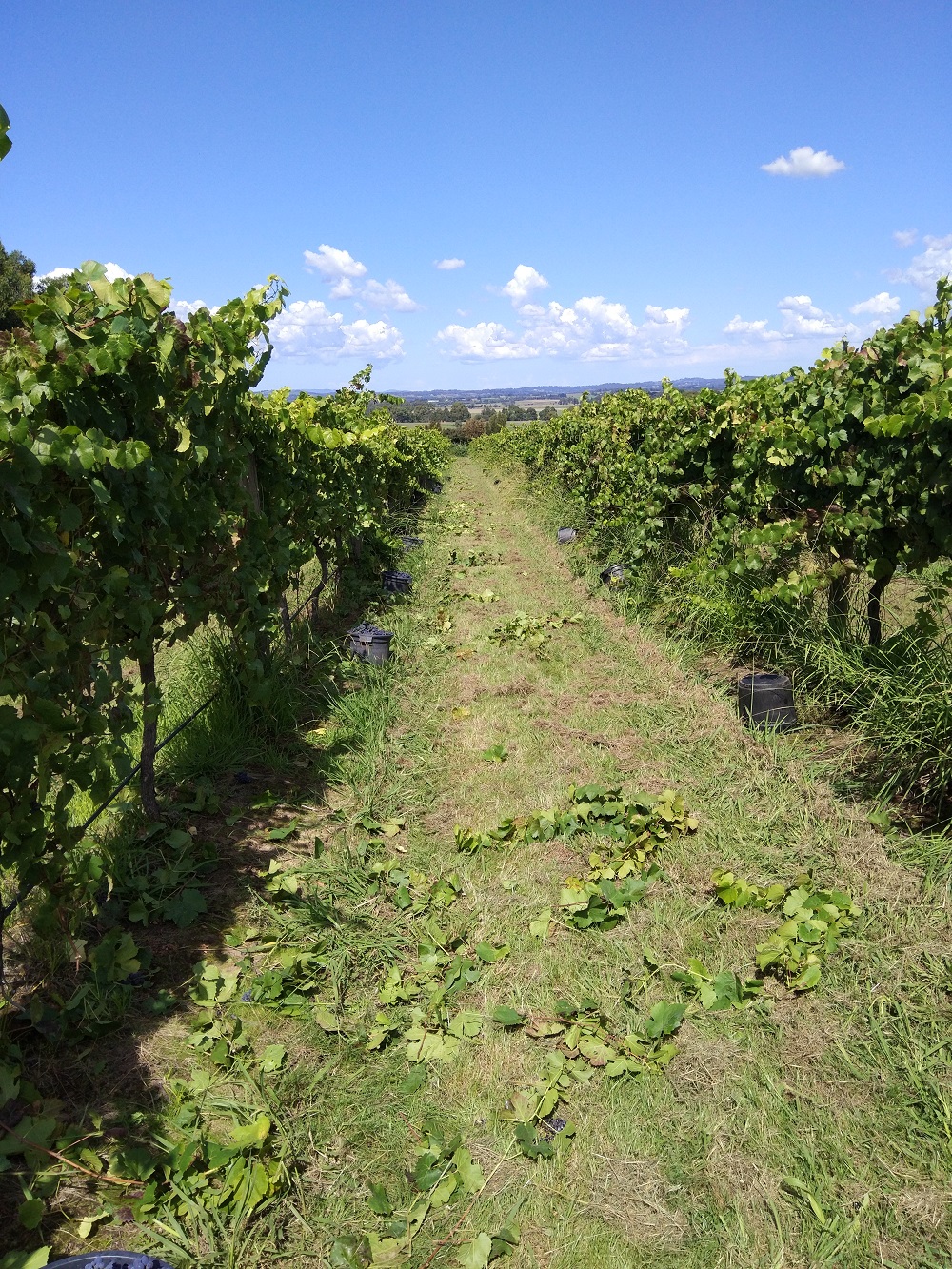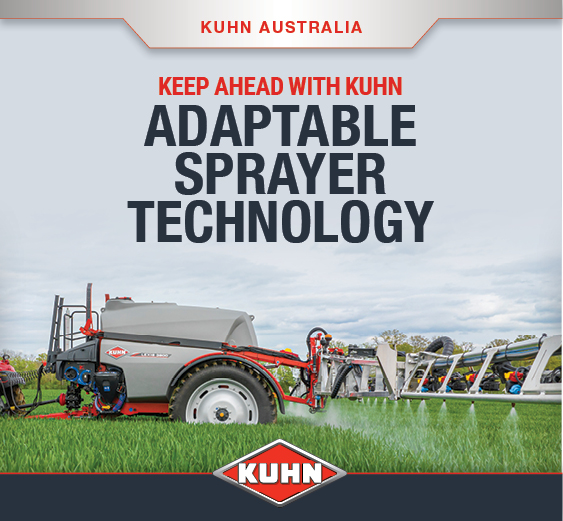Image: Josh Ramsey.
While pandemic lockdowns have led to job losses and financial hardship across various industries, a lucky few have still managed to be presented with opportunities to start out in their desired career.
Journalist Samuel Squire looks at how starting out in the wine industry has shaped up in 2020.
With 2020 throwing up confusion and uncertainty for many younger people looking for their first job, tertiary level wine and viticulture students have been among those looking to launch a career in difficult circumstances.
With cellar doors having been affected by COVID-19 – especially in Victoria, which has been subject to strict lockdown restrictions – and with wineries and vineyards practising ongoing social distancing, job prospects would seem to be few and far between.
But determined graduates are still managing to find pathways leading to employment.
Josh Ramsey studied a bachelor’s degree in viticulture and oenology at the University of Adelaide and has now landed himself a full-time position as a cellar hand in the Yarra Valley.
|
|
Ramsey says his time as a student imparted many solid skills that have helped to prepare him for real life in the winery, adding that studying at a campus surrounded by some of South Australia’s most iconic winegrowing regions added crucial learning experiences to what is a “well-taught” degree.
He says courses offered under the viticulture and oenology degree do “the best possible job [they] can to train you to work in the field”.“University was a pretty good time for me. First of all, Adelaide is a great location to learn about wine [because] you’ve got three great regions all within an hour’s drive,” he said. “The course is generally well taught and [my cohort and I were] supported by a great team of teachers. “I definitely enjoyed my four years there and learnt so much. It blows my mind thinking about how little I knew before my degree.” |
Going straight from the university gates into the wine workforce went “about as expected”, says Ramsey, thanks to hands-on time on placement. Landing a full-time gig straight from university was “pretty lucky” for Ramsey as the pandemic and ensuing lockdowns meant casual workers’ jobs were either at risk, or gone – at least temporarily.
“Working as a cellar hand straight out of uni has gone just about how I expected it and my placement experience geared me up pretty well to working in a winery post-university,” he said.
“The placement was a bit like being thrown in the deep end, but most places are understanding that you don’t really know what you’re doing and will help you out if you ask for it.
“Of course nobody could expect the coronavirus pandemic to strike how it did. I was pretty lucky in that I managed to snag a full time gig straight up out of uni.
“Some people I know just got short term vintage gigs with the expectation they would get a hospitality job afterwards, which meant they ran into trouble when COVID hit, with a lot of casual work was shut.”
Ramsey said the pandemic has hit wineries exceptionally hard, as many rely heavily on cellar doors, which were, and in some cases still are, subject to closure during lockdowns. He says, in one regard, those starting out in the industry have been lucky, as the work done in wineries and vineyards had been deemed as essential work in Victoria and across Australia – with only minor changes.
“Just more hygiene around the cellar floor and other precautions like that,” he explained.
“The industry in general has been hit pretty hard [by COVID] though; a lot of wineries rely on cellar doors and restaurants for income, and that suddenly dried up.”
On-the-job training is key
For a graduate with only a keyhole’s peek of on-site experience in a winery, Ramsey said that on the job training is where the real tricks of the trade are learnt, with this being the most important part of career progression.
“You can only learn so much from the books, you have to learn how to apply that in real life scenarios,” he said.
“It’s the goal for most people out of university to work in the field they studied. It would be nice to be able to point to a wine and say “I made that” and then explain to people why it tastes the way it does.
“They can only pop up through real time and experience in the trade. You never really stop learning about wine, it’s a journey.”
Although, according to Ramsey, studying a degree doesn’t prepare a graduate for all the likely scenarios they’ll encounter in the winery.

“Ultimately, the degree can only do so much to prepare you for the real work, the rest comes with experience,” he said.
“The degree can’t teach you how to deal with things going wrong and breaking during vintage, for example. But the degree gives you the tools to deal with these issues the best way possible.”
Transitioning from study to trade seems to have been an exciting leap for Ramsey as he says his daily role as a cellar hand is teaching him new skills every day.
“My daily responsibilities at the winery can vary,” he said, “During vintage, they mainly involve crushing the fruit as it arrives, doing pumpovers for the fermenters, pressing the skins off, and barrelling down”.
“Outside of vintage it is much more relaxed, you would more often than not mainly find me blending wines, taking wine out of barrel, topping barrels to remove any ullage and getting wine ready for bottling.
“There’s a lot of sampling of barrels to make sure that they aren’t going bad in barrel.” He went on to explain how the stereotype of cellar hands being “glorified cleaners” might not be too stretched as a concept.
“Both periods have a lot of cleaning involved,” he said, “Most people don’t realise how much cleaning is involved in making wine”.
“You probably spend 85% of your time cleaning and the rest is making wine. People always joke that cellar hands are glorified cleaners, but they’re not wrong.”
Ramsey adds that the experience being gained now in his job could help to lead to other ambitions.
“Ultimately, the goal is to have my own small label, so wherever I end up I hope to at least still be making wine in some fashion. But the beauty of this industry is that you never know where you’ll end up, it’s an adventure.”
This article was originally published in the October issue of the Australian & New Zealand Grapegrower & Winemaker. To find out more about our monthly magazine, or to subscribe, click here!
Are you a Daily Wine News subscriber? If not, click here to join our mailing list. It’s free!

















